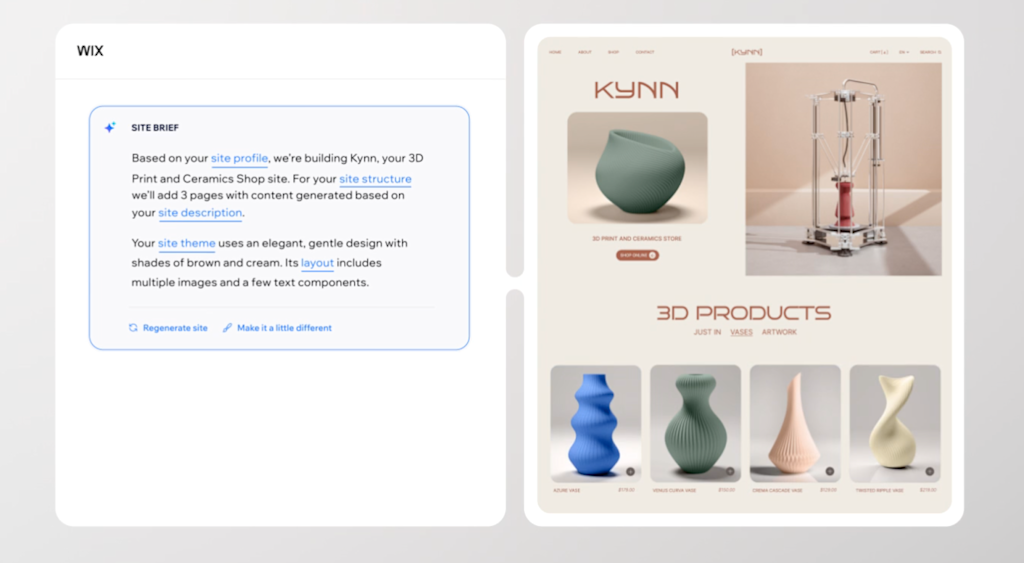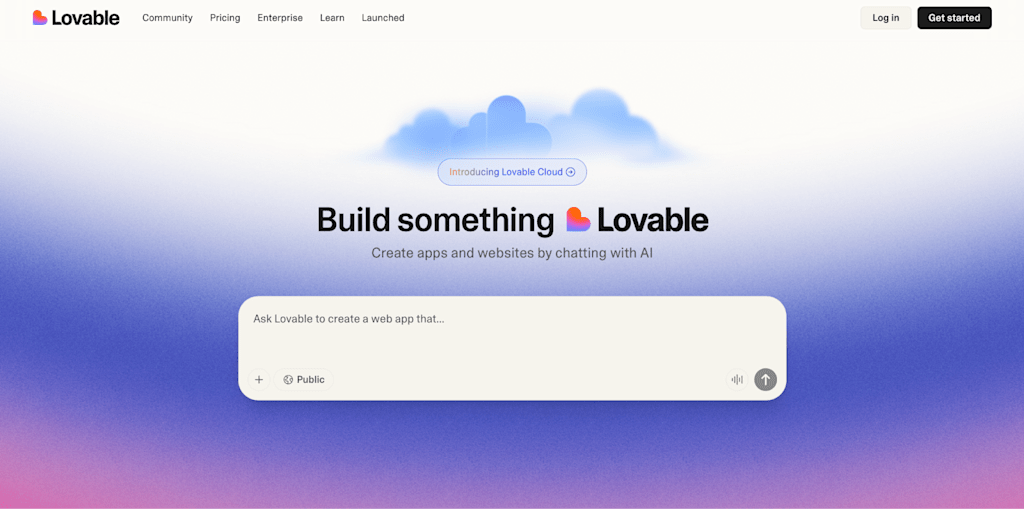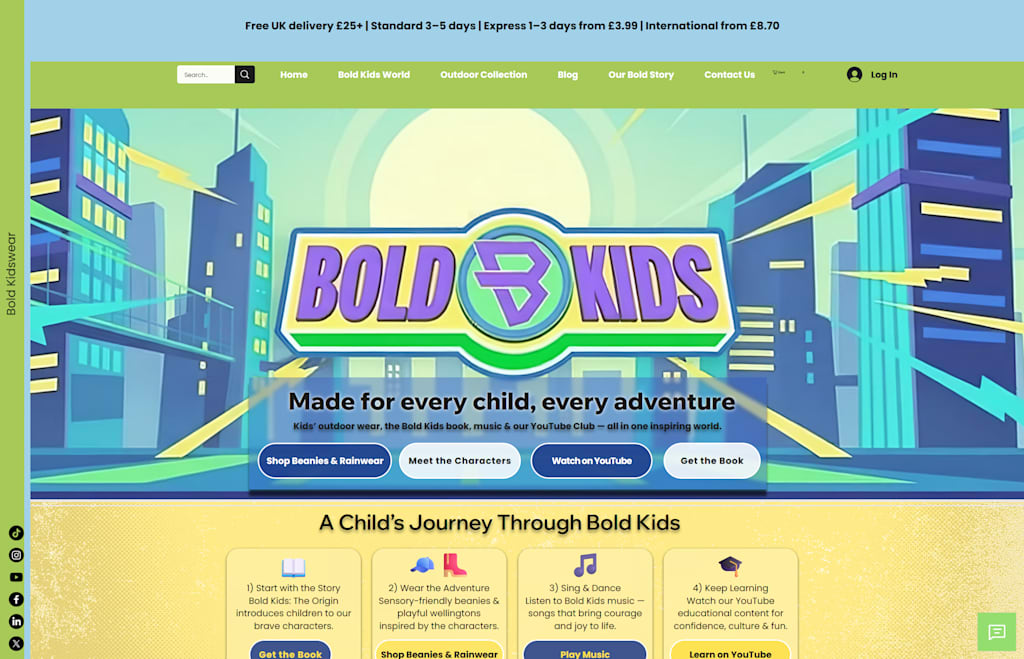Artificial intelligence might sound like something reserved for big tech firms, but the numbers tell a different story. AI for small business in the UK has already gone mainstream: more than half (57%) of small business owners say they use it, and over a quarter (27%) rely on it daily. From writing emails to handling admin, AI is fast becoming the tool that helps entrepreneurs save time, cut costs and stay ahead in a crowded market.
Still, many business owners are asking the same question: how can AI help my business in practise? The short answer—in more ways than you might think. AI is already helping small teams create content, serve customers faster and make confident decisions with less effort.
Backed by fresh VistaPrint survey findings and real examples from UK entrepreneurs, this guide takes a closer look at how small businesses are using AI day to day. You’ll find practical ways to bring it into your own operations, discover tools worth trying and see how other business owners are already turning technology into measurable results.
- The main benefits of using AI for small business are increased efficiency, reduced costs, better decision-making and more time for strategy and creativity.
- Common processes AI can streamline include marketing, customer service, design, finance, legal tasks and everyday admin through automation.
- UK examples include Zig and Star Shoes’ AI foot scanner, Bold Kidswear’s content tools and No Fuss Meals’ grant-writing support.
- AI adoption will keep growing, with smarter tools and stronger data protection shaping the future.
Why small businesses in the UK are embracing AI
Small businesses across the UK aren’t strangers to rapidly developing artificial intelligence technology. More than a quarter (27%) use AI every day, while nearly half (49%) rely on it four to six days a week. It’s quickly becoming part of the everyday toolkit for entrepreneurs looking to save time, work smarter and stay competitive in a fast-moving market.
“More small business owners are turning to emerging technologies to scale their operations, and AI, in particular, is enabling them to work smarter and grow faster.”– Sabine Levellier, VP of Marketing at VistaPrint
Among those already using AI, 84% report a positive overall impact—from smoother operations to more confident decision-making.
The reasons behind this shift are clear: AI makes running a business less about admin and more about outcomes. And the data shows exactly where it’s making a difference:
- Improved efficiency—the top advantage, cited by 34% of respondents. AI automates everyday tasks such as scheduling, inventory updates and email sorting, reducing time spent on manual work and letting owners focus on higher-value goals.
- Reduced business costs—highlighted by 14% of small business owners who use AI to handle routine processes like payroll, bookkeeping or marketing automation. By cutting manual input and improving accuracy, AI frees up both time and resources.
- Enhanced customer service—noted by 11%, as AI-driven chatbots and CRM systems help businesses deliver quick, personalised replies and maintain consistent support, even outside working hours.
- Streamlined decision-making—credited by 9%, with AI tools turning data into practical insights that inform smarter choices on pricing, operations and customer trends.
For sole traders, the benefits are even more pronounced. Nearly eight in ten (79%) say AI has helped them work more effectively—proof that powerful tools aren’t limited to big budgets or large teams.
Together, these findings highlight AI’s capacity to level out the business landscape. It puts small businesses on more equal footing with larger competitors by making advanced capabilities accessible and affordable.
How AI can help your business: Practical use cases of AI for small business & tools
1. Marketing and content creation
According to our survey, 37% of the UK small business owners already use AI to create marketing or brand content, and 35% rely on it to draft emails. Whether it’s planning social posts, writing newsletters or creating visuals, AI helps busy entrepreneurs keep up with constant content demands—without hiring extra staff.
Social media marketing
Social platforms are hungry beasts, and AI helps feed them.
Tools like Crayo simplify short-form video creation with smart templates that match your brand and tone, while Buffer uses AI analytics to recommend the best posting times and formats for maximum engagement.
Zeely AI goes a step further by generating ad copy and visuals optimised for conversion, and VistaCreate gives businesses access to ready-to-edit social templates—so even without a design background, you can create eye-catching posts in minutes.

AI features in the VistaCreate online editor
Together, they help small business owners establish stronger social presence, product consistent content and spend more time running the business, not running out of ideas.
Email marketing
Beyond social media marketing, AI helps transform email from a guessing game into a finely tuned marketing channel by:
- Segmenting customers automatically—Tools like Ortto group audiences by purchase behaviour and engagement.
- Personalising every send—Software like Brevo and Klaviyo help marketers automatically tailor subject lines and content for each recipient based on past interactions.
- Predicting what drives clicks—A tool like Drip can recommend offers or timing for higher open and conversion rates.
Together, they make it easier for small businesses to nurture customers and keep communications relevant without the manual setup.
2. Website building and digital presence
A professional website is the modern shopfront for any business. Yet, building and maintaining one can be time-consuming. AI tools are simplifying the process. AI-powered software help small business owners to:
- Generate an entire site structure and layout automatically based on industry and brand tone.
- Create product descriptions, headlines and SEO-friendly copy in seconds.
- Test navigation or design changes through AI-powered user experience analysis.

Source: Wix
As a result, business owners that implement these tools can draft websites quickly, customise designs and drastically improve customer experience without expanding the development team.
3. Visual design and branding
Design work is another area that no longer demands a big in-house team or a hefty agency budget. With the right AI-powered tools, small businesses can now produce professional visuals quickly and consistently. Here are a few to get you started:
- Vista AI Logomaker to build an AI logo that reflects your brand’s style and values in just a few clicks
- VistaCreate to access drag-and-drop templates for everything from business cards to posters, all easy to customise with AI image generation, background removal and object removal
- Recraft to generate artwork in a consistent visual style across multiple formats, helping you maintain brand cohesion
- Descript, Invideo AI and HeyGen to simplify video production, from trimming clips to generating AI avatars for explainer videos or product demos

AI logos created with VistaPrint’s AI Logomaker.
Around 34% of small business owners in the UK now use AI for small business design, creating their own graphics, logos and visuals—showing that you don’t need an in-house design team to look like you have one.
4. Customer service
Customer service can make or break a small business; and 29% of UK business owners already use AI to make it simpler. Instead of juggling endless messages or watching the inbox like a hawk, AI tools now handle many of the everyday support tasks that keep customers happy.
Here’s how small businesses are putting them to work:
- Automating FAQs—Text App and Chatfuel reply instantly to questions about opening hours, delivery or returns, freeing time for issues that need a personal touch.
- Managing orders and tickets—Gorgias connects with Shopify and other e-commerce platforms to track orders, process refunds and log queries automatically.
- Prioritising messages—Zendesk and Gladly flag urgent requests, assign them to the right person and suggest relevant responses.
- Handling multilingual support—Built-in translation features let businesses respond quickly and accurately to overseas customers.
As a result, UK businesses using AI for customer service enjoy faster responses than a Greggs coffee run, fewer missed messages and smoother experiences all round.
5. Finance and operations
Numbers may not be everyone’s cup of tea, but AI keeps them in check. 19% of small business owners in the UK already use AI for bookkeeping, forecasting or cash-flow management. The usual AI-powered toolstack for streamlining finance and operations includes:
- QuickBooks AI to automate invoicing and identify spending trends
- Xero to reconcile transactions and flag payment delays automatically
- Float to project cash flow, helping owners prepare for quiet months
- Fathom to turn data into visual dashboards that are actually easy to read
Together, they make it easier to stay on top of finances—and essentially avoid any “I-forgot-to-file-that-VAT-return” moments.
6. Product development and coding
IT developers were among the first to jump on the AI bandwagon. Actually, long before it made headlines. The rise of so-called “vibe coding” (building apps or websites from simple text prompts) showed just how much potential AI has to speed up digital creation. Now, that same technology is helping small businesses across the UK bring their own ideas to life—no coding degree required.
About 17% of UK business owners already use AI for code-related tasks, from prototyping new tools to fixing minor website bugs. Platforms such as Lovable turn written ideas into working app prototypes, while Appy Pie Vibe lets entrepreneurs build functional apps visually. For those who still prefer a bit more control, Replit assists with debugging, code completion and live testing.

Source: Lovable
For small businesses, that means they can test new digital ideas, automate internal workflows or customise e-commerce features in days instead of months. AI has really turned development from a specialist job into an accessible, creative playground for anyone with a good idea and a bit of curiosity.
7. Legal and compliance
Legal work isn’t glamorous, but it’s essential—and often one of the biggest drains on a small business’s time and budget. 14% of UK business owners now use AI to take some of that strain off by automating routine legal processes that once required expensive expertise.
Here’s what AI can streamline:
- Contract drafting and review—Automatically spotting missing clauses, inconsistencies or outdated terms before they turn into costly issues.
- Document summarisation—Translating long, jargon-heavy contracts into plain English summaries that are easier to understand and share internally.
- Regulatory compliance—Checking agreements and policies against GDPR and other UK regulations to help businesses stay compliant.
- Risk detection—Flagging clauses that could create liability or conflict down the line, offering proactive protection instead of reactive fixes.
Platforms like DocLegal.AI, LegalFly and Lexis+ AI make these capabilities accessible to small businesses that can’t justify hiring full-time legal support.
8. Workflow automation
Finally, after covering everything from marketing to legal tasks, there’s one area where AI ties it all together—automation. Around 18% of UK small business owners already use AI to cut down on admin, and this is where the technology quietly does some of its best work.
Automation tools streamline the invisible but essential parts of running a business: sending invoices the moment a form is submitted, updating customer data across platforms or reminding clients about upcoming appointments. Tools like Gumloop and Zapier connect everyday systems—Gmail, Slack, Shopify and more—so these processes happen automatically and consistently in the background.
Real business stories: AI for small business in action
After exploring how AI can streamline everything from marketing to workflow automation, it’s worth seeing what this looks like in real life. Across the UK, many small business owners are already integrating AI into several parts of their operations—often combining tools for marketing, customer service, design and even product development.
The result isn’t theory but measurable impact: faster processes, better customer experiences and more time to focus on growth.
The examples below show how real entrepreneurs are using AI day to day—proving that this technology isn’t reserved for tech giants or developers but is already delivering tangible results for UK businesses of every size and sector.
Zig and Star Shoes

Zig and Star Shoes uses AI to create a smooth shopping experience for customers.
Zig and Star Shoes, a sustainable children’s footwear brand, uses AI to create a smarter, more personal shopping experience. Founder Alison McAleavy relies on AI in several areas—marketing, customer service and even product innovation.
“I use AI every day with my work. ChatGPT (paid version) has become my marketing assistant and go-to for every small role such as email/blog writing, content creation and general ad hoc tasks.”– Alison McAleavy, Founder of Zig and Star Shoes
The brand is also preparing to launch an AI-powered foot scanner that allows customers to measure their feet at home and receive personalised size and fit recommendations.
Beyond product experience, an AI-trained customer service assistant now helps resolve online queries, keeping customer interactions consistent and efficient.
“It’s streamlined processes, and while the input/output is still managed by a person, it’s amazing how it’s allowed myself and the team more time to focus on future strategies and be much more effective.”– Alison McAleavy, Founder of Zig and Star Shoes
Bold Kidswear

Bold Kidswear streamlines content creation greatly with the help of AI tools.
Another brand in the inclusive kidswear space, Bold Kidswear uses AI to simplify content creation and enhance customer communication. Founder Jattu Jallon says that integrating AI into daily workflows has helped the small team stay consistent online while improving response times and efficiency behind the scenes.
“It’s been a helpful tool in streamlining content creation, enhancing customer support processes, and improving overall efficiency within our business.”– Jattu Jallon, Founder of Bold Kidswear
Bold Kidswear shows how even a small, mission-driven business can use AI to handle repetitive tasks—freeing up more time to focus on creativity and brand growth.
No Fuss Meals for Busy Parents

No Fuss Meals for Busy Parents is a prime example of a business that streamlines all major processes with AI.
For No Fuss Meals for Busy Parents, a UK social enterprise, AI has become a silent team member that saves both time and budget. Founder Milly Fyfe uses it to manage everything from funding applications to social media content—tasks that once required hiring part-time help: “I use AI on a daily basis to help refine our grant funding applications and general marketing tasks like a social media content plan. I was nearly at a point where I was going to employ a part-time member of staff, but AI has really supercharged our productivity.” When inspiration runs low, Milly notes that AI also lends a creative hand.
“When we have a creativity block or need to create an engaging hook on a social media post, we can use AI to assist with this.”– Milly Fyfe, Founder of No Fuss Meals for Busy Parents
For Milly, AI isn’t replacing people, but rather helping her small team stay focused on their mission: providing healthy, accessible meals for families without the overhead of extra staff.
Future outlook: Where AI for small businesses is headed
The story so far shows clear progress: small businesses in the UK are already using AI across marketing, operations, finance and customer service. Yet the real transformation is only beginning. Adoption is widening, tools are becoming more accessible and new use cases are emerging almost every month.
Still, the road ahead won’t be without a few growing pains. According to our survey, 30% of UK small business owners see no long-term threat from AI, but others have specific concerns:
- Cybersecurity risks: 24% worry about fraud or hacking by third parties using AI.
- Market disruption: 17% fear their products or services could become obsolete as the technology advances.
- Customer trust: 16% are cautious about how AI might influence brand perception or authenticity.
- Competitive disadvantage: 14% worry they’ll fall behind if they can’t afford to adopt new AI tools quickly.
These concerns are valid but manageable. Business owners can stay protected by maintaining human oversight, setting clear ethical standards and being transparent about how AI interacts with customer data. Compliance with UK data protection laws and GDPR remains vital, especially for those using AI in communication, marketing or customer profiling.
At the same time, most small business owners see AI as an opportunity rather than a risk. Nearly one in five non-users (19%) plan to adopt AI soon, signalling a strong upward trend in the UK market. The advantages are difficult to overlook:
- Competing with larger firms through efficiency and automation.
- Innovating faster, testing new ideas without major investment.
- Freeing up time for strategy, creativity and genuine human connection.
One thing to understand and keep in mind is that AI isn’t here to replace small business owners or their teams. Instead, it’s becoming a quiet force behind the scenes—helping them work faster, make smarter decisions and adapt to whatever the market brings next. For most UK entrepreneurs, it’s simply another tool that makes running a business more efficient and more rewarding.
Ready to incorporate AI into your small business?
AI isn’t some ambiguous “next big thing”. It’s very real, and it’s already hard at work behind the scenes, helping small businesses save time, cut costs and deliver better results.
The smartest move you can make now is to start exploring how it fits into your own workflow. You don’t need a grand plan or a big budget; start small, experiment and build from there.
The combination of human creativity and smart automation is where real progress happens. With the right tools, your small business can compete with bigger players, connect with customers in new ways and grow faster than you thought possible.




